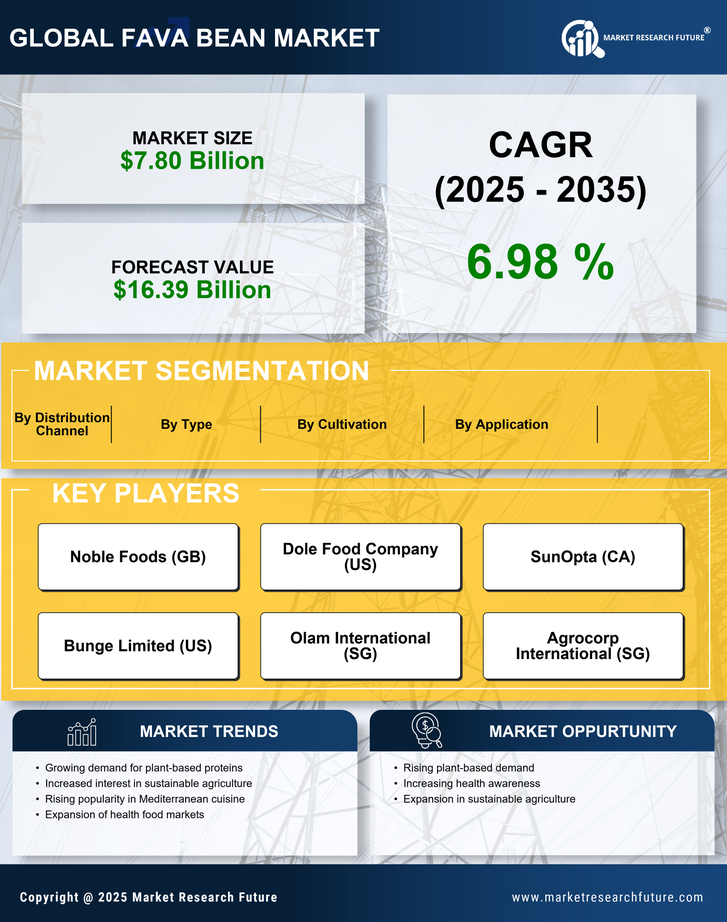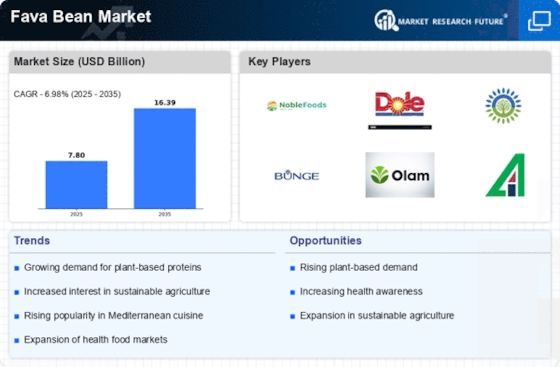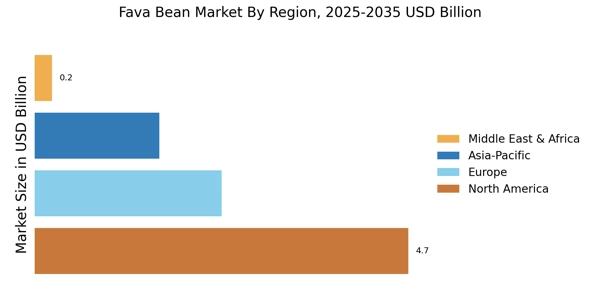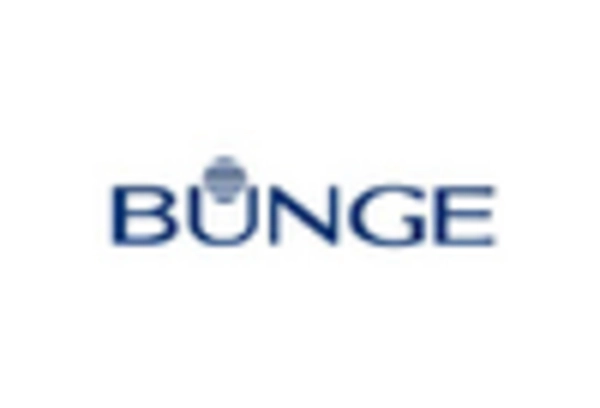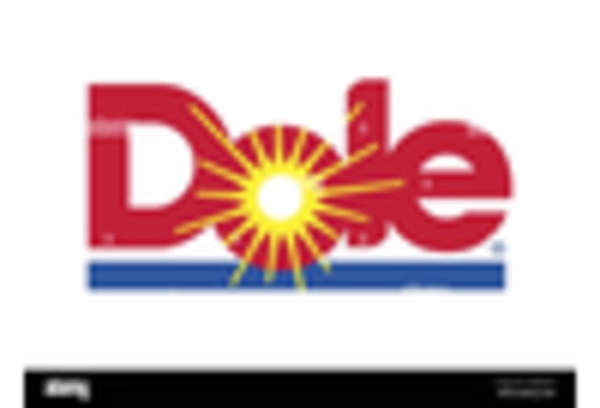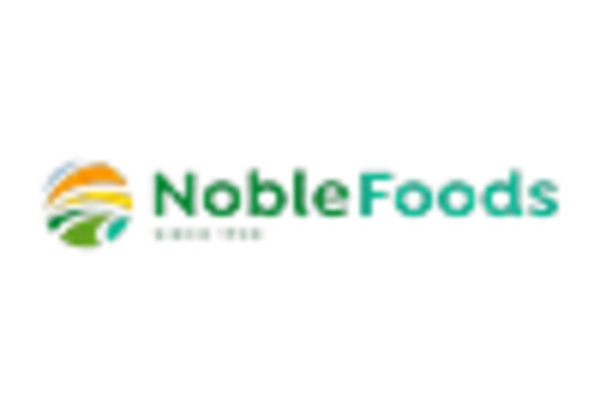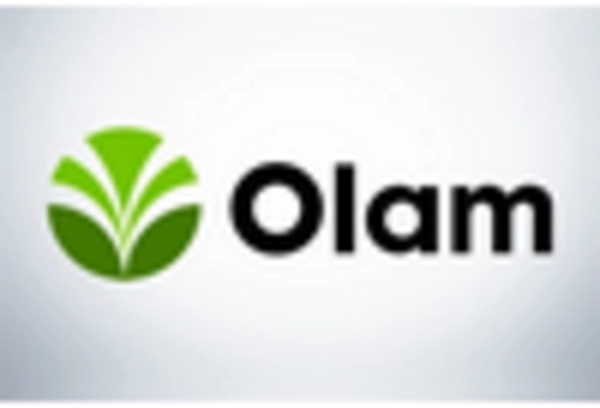Nutritional Benefits of Fava Beans
The Fava Bean Market is experiencing a surge in demand due to the increasing awareness of the nutritional benefits associated with fava beans. Rich in protein, fiber, and essential vitamins, fava beans are becoming a staple in health-conscious diets. Recent data indicates that fava beans contain approximately 26 grams of protein per 100 grams, making them an attractive alternative to meat for vegetarians and vegans. This nutritional profile is likely to drive consumer interest, particularly among those seeking plant-based protein sources. As the trend towards healthier eating continues, the Fava Bean Market is poised for growth, with manufacturers increasingly incorporating fava beans into various food products, from snacks to meal replacements.
Culinary Trends Favoring Fava Beans
The Fava Bean Market is witnessing a transformation driven by culinary trends that favor the use of fava beans in diverse cuisines. Chefs and home cooks alike are increasingly experimenting with fava beans, recognizing their unique flavor and texture. This trend is evident in the rise of fava bean-based dishes in restaurants and food blogs, which highlights their versatility in both traditional and modern recipes. As culinary innovation continues to thrive, the Fava Bean Market is likely to see an increase in demand for fava bean products, ranging from purees to flour, catering to a variety of culinary applications.
Rising Demand for Plant-Based Proteins
The Fava Bean Market is benefiting from the rising demand for plant-based proteins, which is reshaping dietary preferences across various demographics. As consumers become more aware of the environmental impact of animal agriculture, there is a noticeable shift towards plant-based diets. Fava beans, with their high protein content and versatility, are well-positioned to meet this demand. Market data suggests that the plant-based protein sector is projected to grow significantly, with fava beans playing a crucial role in this expansion. This trend not only supports the Fava Bean Market but also encourages innovation in product development, as companies explore new ways to incorporate fava beans into everyday foods.
Sustainability Initiatives in Agriculture
The Fava Bean Market is positively influenced by sustainability initiatives in agriculture, as fava beans are recognized for their low environmental impact. These legumes are nitrogen-fixing plants, which means they can improve soil health and reduce the need for synthetic fertilizers. As agricultural practices shift towards more sustainable methods, the cultivation of fava beans is likely to increase. This shift not only supports the Fava Bean Market but also aligns with consumer preferences for environmentally friendly products. The emphasis on sustainability is expected to drive growth in the market, as more farmers adopt fava bean cultivation as part of their crop rotation strategies.
Increased Availability of Fava Bean Products
The Fava Bean Market is experiencing growth due to the increased availability of fava bean products in retail and online markets. As consumer interest in fava beans rises, manufacturers are expanding their product lines to include fava bean snacks, flour, and ready-to-eat meals. This expansion is supported by data indicating that the market for fava bean-based products is projected to grow at a compound annual growth rate of over 5% in the coming years. The enhanced accessibility of these products is likely to attract a broader consumer base, further driving the growth of the Fava Bean Market as it becomes a more prominent player in the health food sector.
